
HAIs
Latest News

Latest Videos

More News

A large population study of more than 1,100 adults suggests there are really 2 biologically meaningful nasal states: noses dominated by Staphylococcus aureus and noses ruled by protective commensals like Corynebacterium and Dolosigranulum. Intermittent carriers fall in between, prompting researchers to rethink long-standing categories of S aureus colonisation and risk.

Missed opportunities, Graves warned, place patients at risk. Many surgical patients are immunocompromised, and a stethoscope may come near the incision. “Regardless of the scenario, [cleaning the stethoscope] each time is going to protect patients.”

Stethoscope hygiene, UV technology, and dwell time failures took center stage in this second installment of a panel of experts explored why routine disinfection still lags and what must change in clinical practice.

For more than 80 years, the humble chicken egg has quietly powered one of modern medicine’s most vital defenses: vaccines. Even in an age of recombinant DNA, mRNA platforms, and cell-based innovations, more than 80% of the world’s influenza vaccines still begin in an egg. The process is time-tested, affordable, and reliable—but also imperfect. read this to learn more.

With hospitals across the country accelerating investments in automation, why does human competence remain vital?

Dental and oral surgery clinics are often overlooked in infection prevention programs, yet lapses can have serious consequences. Strengthening surveillance, sterilization, and patient safety practices is critical to reducing surgical site infections.

Elevating IPs into executive leadership isn't symbolic; it's a strategic imperative.
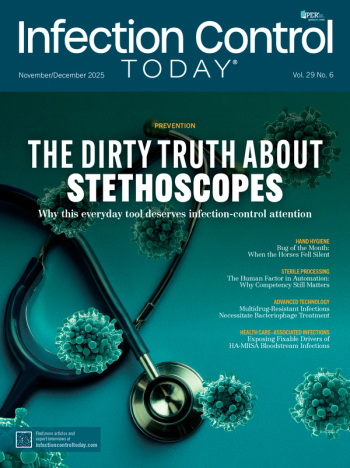
The November/December 2025 issue of Infection Control Today® dives into overlooked risks, breakthrough technologies, and the people driving innovation across IPC, EVS, and sterile processing. From bacteriophage therapy to burnout prevention, automation to UV regulation—it’s a powerful close to the year. Read the issue now: https://www.infectioncontroltoday.com/journals/infection-control-today #InfectionPrevention #Healthcare #InfectionControl #EVS #IPC #PatientSafety #ICT
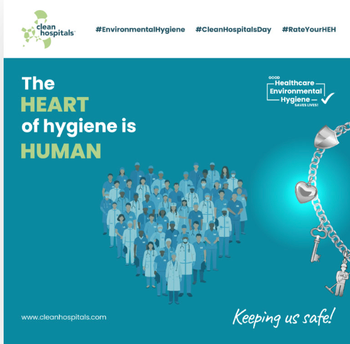
Oman is earning international attention for transforming hospital environmental hygiene into a national success story. Through the Clean Hospitals initiative, updated cleaning contracts, and workforce training, the Ministry of Health is showing how a unified approach to cleaning, auditing, and accountability can reduce infection risk and raise global standards in health care hygiene.

The Bug of the Month helps educate readers about clinically significant pathogens, both existing and emerging, in today's health care facilities.

Sherrie is back! In this The Clean Bite, she discusses single-use vs Resusable Dental Supplies. Ultrasonic scaler tips, burs, and endodontic files are often reused despite being marketed as single-use. How many patients are at risk from shortcuts in reprocessing?
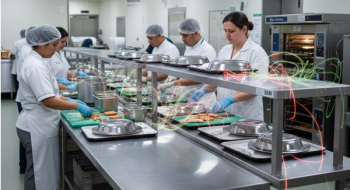
"Hospital tray lines operate at high speed to feed hundreds of patients daily. Staff members plate food, cover trays, and load them onto mobile carts that navigate elevators, hallways, and patient rooms. Each of these steps introduces opportunities for contamination."

I’ve known Monica and Tim forever, which is why their sepsis battles aren’t just “patient stories” to me. They’re a reminder that infection hides in ordinary days, and that vigilance, source control, and smart antibiotics save lives.
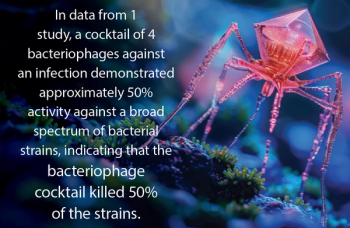

This 6-part series will chronicle the journey of 2 infection prevention leaders, Brenna Doran, PhD, MA, ACC, CIC; and Jessica Swain, MBA, MLT, CIC, IHI, as they partnered to research and shed light on the critical issue of infection prevention staffing in the current health care landscape. From the initial spark of an idea to the publication of an impactful article, a research manuscript, and a podcast, this series will offer an insider’s view of their collaborative process and the profound implications of their findings. This third article in the series will focus on...
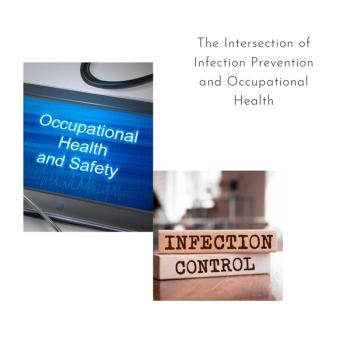
If you’ve ever been asked to track flu shots and handle a chemical splash in the same breath, you’ve met the IP–OH blur. Infection prevention and occupational health often intersect—but their missions differ. Knowing where each begins ensures safer patients, safer staff, and smoother responses.

Crowded waiting rooms can turn routine checkups into transmission hubs. Here’s how outpatient clinics can cut risk, starting at the front door, with smarter cleaning, hand hygiene, masks, and fewer extra visitors.

Hospital-wide sequencing of 8,567 Staphylococcus aureus isolates at NYU Langone revealed that many MRSA cases stem from tight community transmission networks—not in-hospital spread. Presented at IDWeek 2025, the work pinpoints distinct clusters (young MSM/substance-use networks, long-term care residents, and children) and urges IPC strategies that bridge hospital and community.

At IDWeek 2025, a Detroit consortium reported a familiar IPC paradox in skilled nursing facilities: Staff know the basics, but practice lags. Inconsistent rub times, dwell times, and respirator seal checks point to behavior-focused training—not more slides—as the next move.

A multifaceted infection-prevention push at a tertiary rehab ICU in the Upper Midwest reversed a rise in C difficile, lifting hand-hygiene adherence from 69% to 91% and cutting the C. diff standardized infection ratio from 1.6 to 0.4 over six months, researchers reported at IDWeek 2025 in Atlanta.

New IDWeek 2025 data show who C difficile kills most: White patients, women, and people in major metros—with most deaths tied to health care exposure—underscoring how basics and smarter antibiotics remain our best levers to cut mortality.

Candida auris is the pathogen that won’t take a hint—clinging to surfaces, nesting in biofilms, and outlasting rushed wipe-downs. Yet the chemistries potent enough to kill it can be punishing to people, devices, and environments. This piece tackles the tightrope: how to choose, use, and verify C auris effective disinfection without trading one risk for another.

Join the APIC Research Network (free for APIC members), pick your level, and commit to one survey or collaborative project this year—research for IPs, by IPs. Your idea could shape tomorrow’s practice.

Clean Hospital's Next Chapter: Access, Collaboration, and a Global Push Ahead of Clean Hospitals Day
Get ready for Clean Hospitals Day on October 20. Join the low-cost facility network, nominate a hygiene champion, and bring one real-world challenge to the new expert working groups. Collaboration beats contamination.

Open Vaccine Track, find your metro, and pick one move this quarter—close an access gap, copy a local success, or launch targeted outreach. Small, data-driven steps in the right ZIP codes can shift adult vaccination faster than statewide averages ever will.









